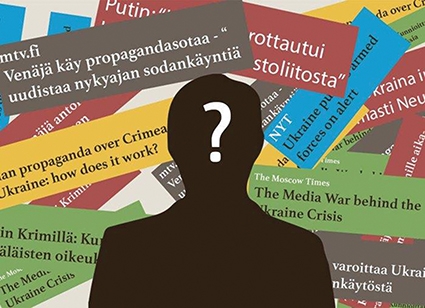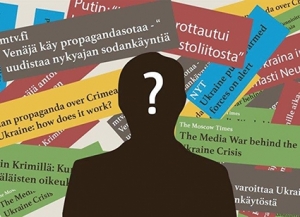The Soviet Origins of Russia’s Information Warfare
Since the recent Russian incursion in Ukraine, many political experts have worked on deciphering Russia’s strategic approach to modern warfare. Some of them have even claimed that the Russia’s takeover of Crimea and ongoing destabilization in eastern Ukraine serve as an indication of the emergence of the Russia’s hybrid warfare doctrine.
After taking a closer look at the current processes of modernization and transformation of the Russian armed forces, it becomes clear that the Kremlin’s grand imperative is not only to improve the quality and raise standards of its military but also to achieve Western standards in terms of adapting itself to the new realities of modern warfare.
Two important factors should be taken into consideration to understand Russia’s attempts to catch up conceptually and practically with the West. First of all, Russia realizes that a relatively low level of investment in its military modernization compared to the NATO member states makes it impossible for its conventional capabilities to match the Western military strength. Further, Russia intends to compensate for its underfinancing of the military by putting significant effort and resources into the development of non-military means of influencing its adversaries. This can be seen in its recent activities to resort to the application of information warfare technologies to ensure sufficient domestic support and survival of the regime, and to prevent the West from its attempts to grant assistance to those countries that oppose Russia’s actions.
The origins and application of the reflexive control theory
Russia’s approach towards modern warfare has focused on attempts to achieve its dominance via information and psychological warfare by mentally exhausting the opponent’s armed forces and the targeted country population, without the need to deploy its military troops to achieve its political goals.
What is usually overlooked is that Russia hasn’t tried to reinvent the wheel in its attempts to adapt itself to the realities of modern warfare. There is increasing evidence that Russia has mainly relied on the Soviet research that was concentrated on the development and application of a so-called “reflexive control” theory (RCT). However, it should be stressed that RCT has existed much longer that the concept of information warfare.
By the late 1950s, the Soviet military experts had become increasingly aware of the fact that their country would find it difficult to keep up its technological investment at the US level. This situation led to attempts to find alternatives to hard power, which laid down the foundation for the Soviet studies on social and psychological regulatory systems. Hence, the comprehensive research on RCT spanned more than four decades and embraced the admixture of its psychological, psychosocial and practically-oriented applications.
Not surprising that such Russian military experts as Major General Nikolai Turko have considered RCT as a means of information warfare, which are much more important than conventional military capabilities. According to Vladimir Lefebvre, one of the RCT originators, conflicts shouldn’t be considered an interaction between the two military forces, but rather as an attempt by each opponent to better imitate the thoughts of their enemy in order to predict their behavior. Hence, it becomes crucial to be able to interfere in the decision-making processes of the adversary by shaping his perceptions and to incline him to voluntarily take steps that serve the Russian agenda. In this regard, Russians consider disorganization of the enemy as the main goal in achieving informational supremacy. To this end, RCT additionally entails the simultaneous use of power pressure, disinformation and deception techniques. In addition, some Russian military experts have considered nation-states as biological organisms, composed of discrete systems, each of which could be targeted by different means. Hence, RCT serves as an effective means for influencing such systems as armed forces, population, mass media, and political leadership of the target country to achieve necessary political goals.
And finally, RCT is currently at the heart of the Kremlin’s hybrid warfare techniques applied in Ukraine. It was skillfully applied by Russia in Crimea by helping Russian strategists to better understand such three target audiences as Russian-speaking inhabitants, Ukrainian authorities and Western audiences. Through the use of RCT, Russia was able to better predict and influence their behavioral patterns to achieve its annexation of Crimea. It also managed to hide its genuine intentions and deny the presence of its boots on the ground. Apart from that, RCT was used to prevent the possibility of any significant Western military assistance to Ukraine. One of the last examples of skillful use of RCT in combination with other political instruments is the Minsk Accords, according to which the whole responsibility to resolve the conflict in the Donbas region is born by Ukraine, while Russia is merely one of the signatories, not parties to the conflict.
Maksym Beznosiuk is an international relations specialist from Kyiv, Ukraine.
Maksym Beznosiuk












